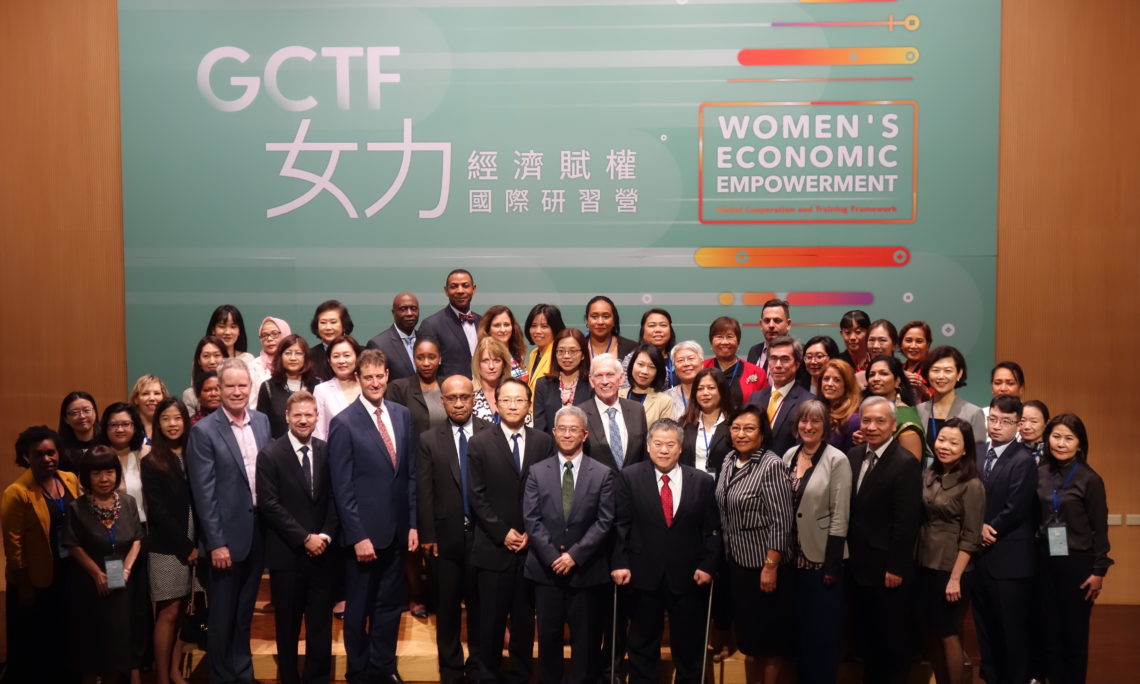April 17, 2019
AIT Official Text #: OT-1923
(As Prepared for Delivery)
Deputy Minister Hsu, Deputy Representative Nishiumi, Small and Medium Enterprise Administration Deputy Director General Hu, Taiwan Academy of Banking and Finance Chairman Wu, ITRI Vice President Su, distinguished guests: good afternoon.
It is my honor to participate in this exciting event during a week full of exciting events. As many of you know, April 10 marked the 40th anniversary of the Taiwan relations act, and the American Institute in Taiwan has hosted a series of events marking that occasion. Today I am pleased to take part in this workshop examining the critical role women play in the trade and investment sectors. I look forward to hearing how countries across the region can and do invest in women as a means of increasing prosperity and stability.
Over the past several years, through the Global Cooperation and Training Framework (or GCTF), the United States and Taiwan have co-organized 16 training workshops such as this for 320 experts and officials from 33 countries, primarily from the Indo-Pacific region. The GCTF has quickly emerged as one of our most successful areas of cooperation with Taiwan, and so we are particularly pleased to welcome Japan in co-organizing this important training with us.
Taiwan faces many obstacles to engaging with the rest of the world, but it has tremendously valuable experience to share. The GCTF is our way of responding to this challenge. Through the GCTF, Taiwan is able to build bonds with Indo-Pacific partners, share its experience, and make valuable contributions to global problem solving.
Of all of the GCTF programs I have participated in, I am most excited about this one. Empowering women is the single most important step the countries can take to boost economic growth and promote equality. The World Bank estimates that empowering women has the potential to add $12 trillion to the global economy. Nothing else – neither trade agreements nor the development of new technologies – even comes close to its potential.
The United States and Taiwan have extensive cooperation when it comes to women’s economic empowerment. We each have contributed funding to the APEC sub-fund on women’s empowerment, and we have created a work plan on small and medium enterprise issues that has promoting women’s entrepreneurship as one of its central pillars. Let me highlight just a few of the new programs we have created under that workplan:
The Overseas Private Investment Corporation (or OPIC) and the Taiwan development authorities are pursuing joint projects aimed at empowerment women. The State Department’s Office of Global Partnerships has funded the launch of StartOpps, which seeks to integrate the digital startup ecosystems of the United States, Taiwan, and Southeast Asia. The State Department’s Bureau of Economic and Business Affairs is developing a project called POWER, which seeks to create a partnership with Goldman Sachs, Microsoft, and Facebook to provide a toolkit for women entrepreneurs in Taiwan and Southeast Asia. I understand you will talk about each of these initiatives – and how you and your home countries can benefit from them – over the next two days. We are fortunate to have leaders and experts from each of these offices here with us for this workshop. Thank you to all of these visitors from Washington for joining us this week.
My greatest hope for this training is that each of you develops a close network here so that you can support one another in your efforts when you go back home. If the people in this room unite together and make promoting women’s economic empowerment a priority as we have, I guarantee you the world will be a more prosperous and peaceful place. Thank you!
















![Video Thumbnail [Recovered]-01](../wp-content/uploads/sites/269/Video-Thumbnail-Recovered-01-1-750x450.jpg)




